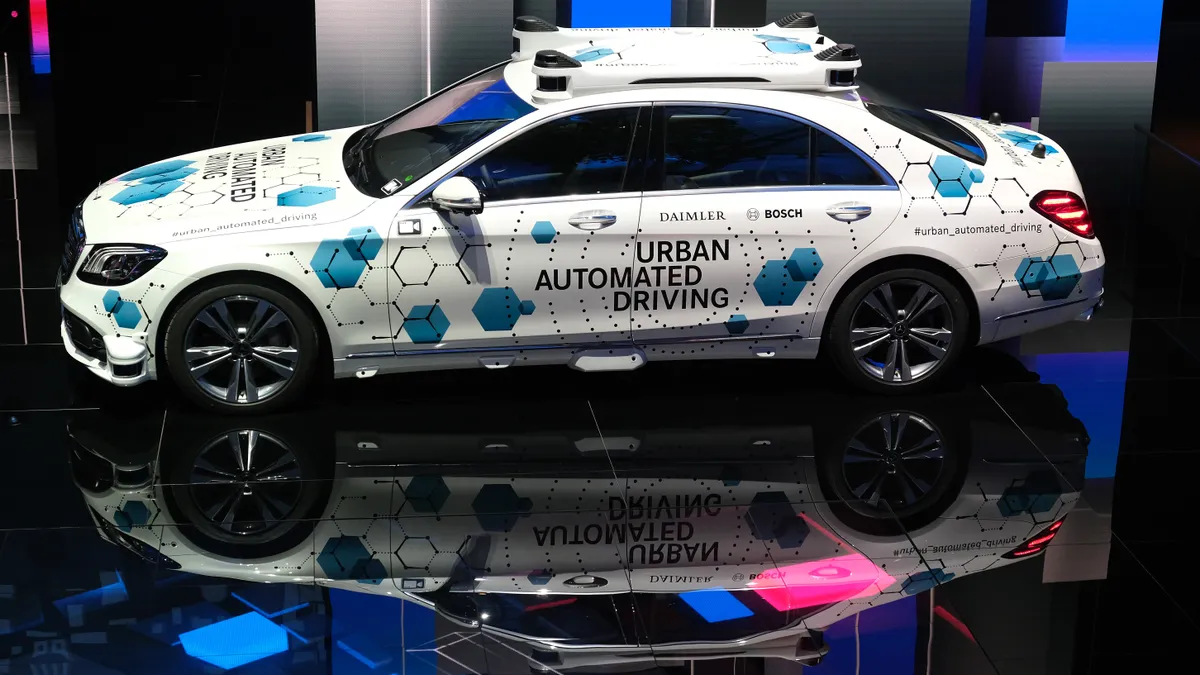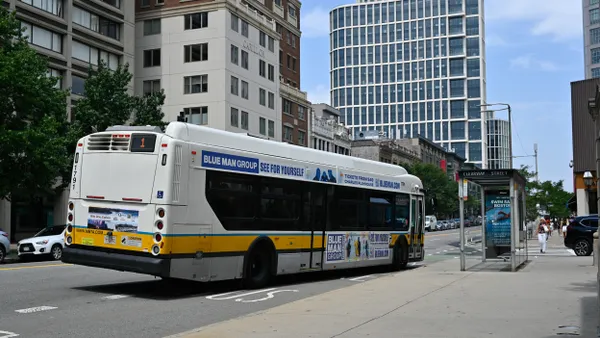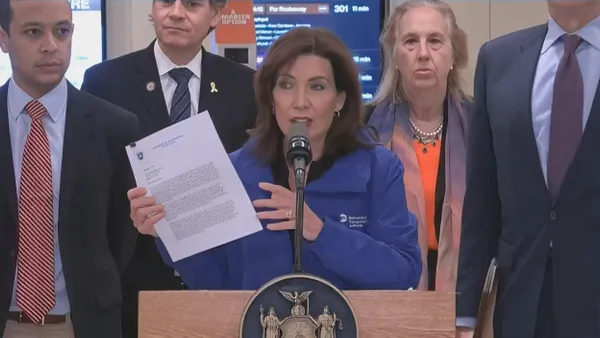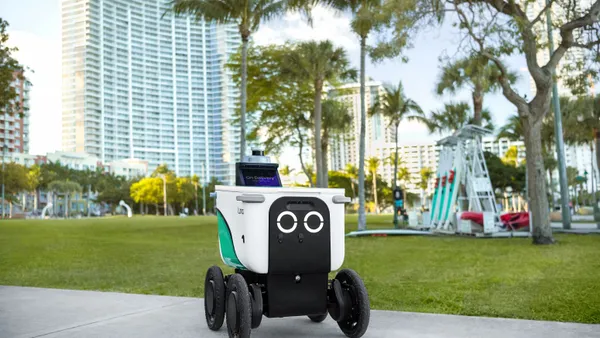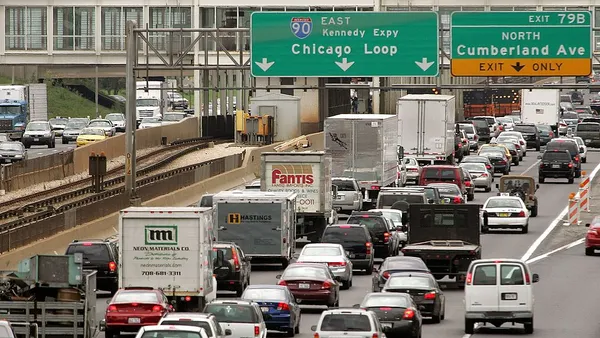Dive Brief:
- The city of Long Beach, California, partnered with Mercedes-Benz Research & Development North America and artificial intelligence firm Xtelligent to deploy and test transportation management systems.
- The 10-month project will include the deployment of an intelligent intersection control system, connected vehicle test fleets and sensors to gather mobility data around the city. The private partners will also help sponsor a community youth workshop and science education opportunities for Long Beach residents and students, especially in underserved communities.
- Ryan Kurtzman, smart cities program manager for Long Beach, said the new project represents the city’s first partnership with Mercedes-Benz Research and Development, which has a testing and certification facility in the city. The program, he said, will further the city’s goals to "explore emerging technology and advancements in data management to make sure they improve quality of life, make services more efficient and ultimately advance equity and other values."
Dive Insight:
The public-private partnership offers Long Beach a unique opportunity to get ahead of new technology like autonomous and connected vehicles before they become commonplace, Kurtzman said. While cities were often forced to deal with mobility changes like ridesharing services and scooters on the fly, a real-world test case will allow Long Beach to "be proactive" without investing heavily in new equipment.
"Often we’re on our back foot to manage new technology in a way that also meets our city-wide goals," Kurtzman said. "This way we can try to actively benefit from and harness new technologies to generate revenues and optimize its use. These things are coming quickly, probably more quickly than we expect."
The partnership will see the Los Angeles- and Scotland-based company Xtelligent install a smart traffic signal, which uses machine learning and real-time data to regulate intersections and move traffic more efficiently. Mercedes-Benz, through its Urban Mobility Solutions arm, will also deploy a fleet of connected and self-driving vehicles, which will interact with the Xtelligent infrastructure for more efficient movement, said Kurtzman. If successful, the project, he added, may be expanded to help the city gather vehicle data on all road users, including bikes, scooters and transit vehicles.
"This partnership represents the best of what a forward-thinking city, leading automotive original equipment manufacturer and innovative venture can uniquely enable when collaborating towards a common, worthwhile goal," Michael Lim, co-founder of Xtelligent, said in a statement.
Kurtzman said the pilot can be extended beyond 10 months if it is successful.
As new technology emerges, cities have increasingly partnered with automakers and tech companies to take advantage of the opportunity to preview new innovations. Ford, for example, invested in mobility technology in Detroit’s Corktown neighborhood as part of a test bed for autonomous vehicles and connected mobility. The automaker also brought its City:One challenge to several other cities, including Indianapolis and Austin, Texas, to fund new initiatives that will benefit new mobility.
General Motors’ Cruise autonomous vehicle service has worked with the state of California on deployment and data collection. State and local officials in Arizona have actively encouraged AV testing in the state. While Columbus, Ohio, forged a successful public-private partnership to test the technology on city streets.
Toyota has even broken ground on a smart city test area known as Woven City in Japan, where it will deploy new vehicles, sensors and internet of things devices in a real-world setting.
While the partnerships have obvious benefits for automakers and tech companies, who can see real-world reactions to new technology, cities also have a lot to gain from working with tech partners, Kurtzman said.
"We see this as an entry to point to future partnerships with Mercedes and the tech industry," he said. "I’m excited to see how we can learn together to meet our mutually stated goals around smart cities, community engagement, equity and sustainability."
Correction: We have updated the story to clarify the scope of the project and note that the Mercedes-Benz Research and Development North America testing and certification facility is in Long Beach, not the U.S. headquarters.


